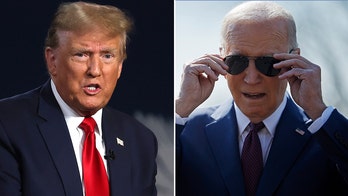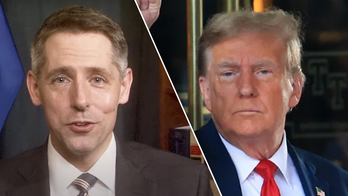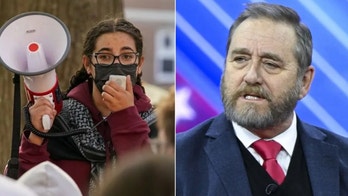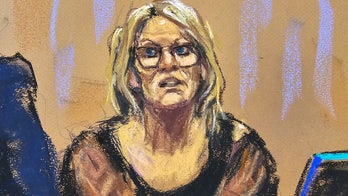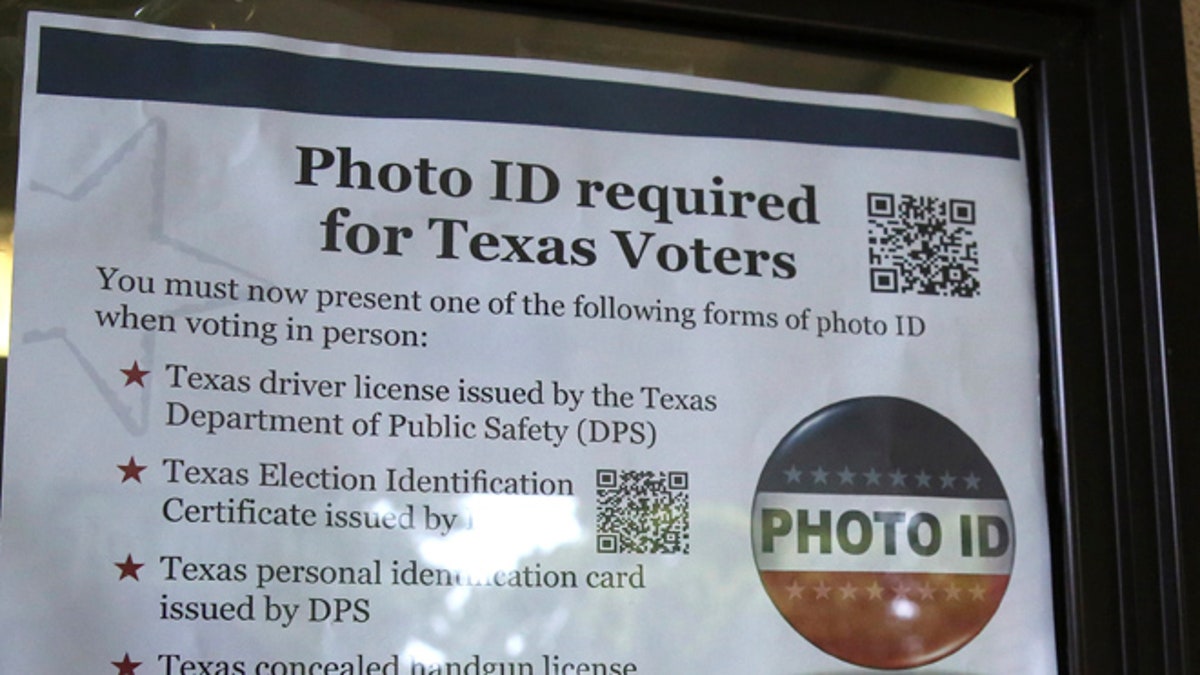
Tuesday, Nov. 5, 2013: A sign in a window tells of photo ID requirements for voting at a polling location in Richardson, Texas. (AP)
Texas voters cast ballots Tuesday about several statewide initiatives, including whether to put $2 billion toward a water infrastructure plan, but not before they were legally required to show a photo ID at the polls for the first time.
Although election officials weren't expecting a large voter turnout tap the state's rainy day fund for water projects and eight other proposed amendments to the Texas Constitution, they said early voting was nearly double what it was two years ago, showing concerns about the voter ID requirements were overblown.
Houston voters were deciding whether to save the shuttered Astrodome and in a special election in Austin a seat in the Texas House was up for grabs. And by 7 p.m., when polls close statewide, voters in the Houston suburb of Katy would decide whether to approve what would be the state's most extravagant high school football complex, at a cost of $69 million.
At a Houston nursing home serving as a polling location, election judge Stelena Evans said 40 people voted in the first two hours and that everyone had come with an ID.
"Apparently, people have really paid attention," Evans said.
Others greeted the new law with frustration. Lesley Evans, 31, said that although she was not personally affected by the law, the Dallas receptionist knew at least four people who had moved recently and weren't able to change their IDs in time.
"I'm repressing anger right now," Evans said before laughing.
The first Texas elections under a disputed new photo ID law provided a distinctive flair to an off-year election that typically draws small turnouts.
Voters must present one of seven forms of photo identification -- such as a driver's license, a passport or a military ID -- to cast ballots. Republican state leaders boasted about early voting turnout in response to Democrats and civil rights groups who have sued to block the law passed by the GOP-controlled Legislature in 2011.
Republican Attorney General Greg Abbott, who is running to replace Gov. Rick Perry in 2014, said critics had "run out of claims" about alleged hardships the mandate would create.
"I haven't ever seen anything that was overhyped as much as some partisan efforts to overhype concerns about this when, in reality, there has been no problems whatsoever," said Abbott, who defended the voter ID law in court.
Juan Quiroz, 66, said a poll worker in the Rio Grande Valley city of San Juan caught a discrepancy between the name printed on his driver's license and the one on the voter rolls. He said resolving the ID issue wasn't much of a hassle.
"I've always voted and never had any problem, but they're really looking at the ID name," Quiroz said.
Texans without a photo ID could obtain a free state-issued election ID after the law went into effect, but only 121 had been handed out as of Monday. About 1,500 people had inquired about the offer, but many already had an acceptable ID, said Tom Vinger, spokesman for the Texas Department of Public Safety.
Early voting nearly doubled from 2011, when the last off-year elections were held in Texas, according to state officials. More than 317,000 people have already voted in the state's 15 largest counties, up from 168,000 early voters two years ago.
Abbott and Secretary of State John Steen pointed to the nearly twofold increase in recent voter turnout as a response to critics who say such voter ID requirements cause problems and are meant to disenfranchise voter that tend to back Democrats. Cases of in-person voter fraud are rare, and critics of voter ID laws say they amount to a solution in search of a problem.
Democrats and opponents of Texas' photo identification requirement said they would be watching closely Tuesday to see if voters were being disenfranchised.
Former U.S. House Speaker Jim Wright was turned away last week when he tried to vote using an expired driver's license or university faculty ID. He said Monday he finally obtained the documents he needed but was concerned about the "nuisance" involved in the process.
Getting the most attention on the ballot is Proposition 6, which would draw down $2 billion from the state's Rainy Day Fund to build water pipelines and reservoirs across drought-parched Texas.
The measure has attracted the most visibility and campaign funds, drawing support from business and environmental groups alike. Some conservatives oppose using the state's savings account to finance large-scale construction projects, while others are concerned the money could be misused.
"I voted yes," said Valerie Brock, 50, an attorney in Houston. "I remember the drought. That's why."

